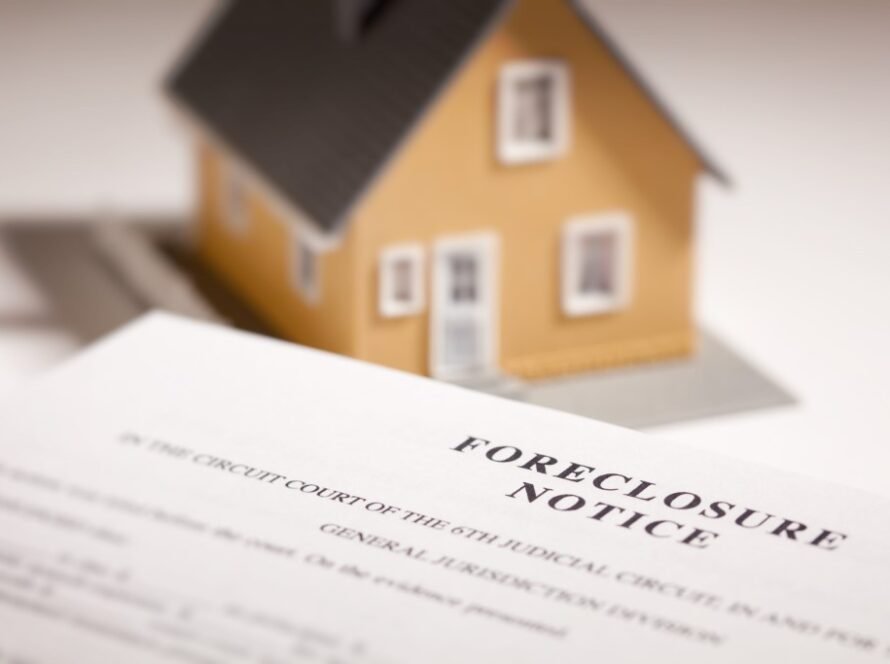When faced with financial hardships and the possibility of foreclosure, homeowners often explore alternative options to mitigate the impact on their credit and financial future. One such option is a Deed in Lieu of Foreclosure. In this blog post, we will delve into what a Deed in Lieu of Foreclosure is, how it works, and its potential benefits and drawbacks.
What is a Deed in Lieu of Foreclosure?
A Deed in Lieu of Foreclosure is a legal agreement between a homeowner and their mortgage lender. It allows the homeowner to transfer the property’s title back to the lender in exchange for the cancellation of the mortgage debt. Essentially, the homeowner voluntarily gives up ownership of the property to avoid the foreclosure process.
How Does a Deed in Lieu of Foreclosure Work?
The process of a Deed in Lieu of Foreclosure typically involves the following steps:
- The homeowner initiates the discussion with their mortgage lender, expressing their desire to explore a Deed in Lieu of Foreclosure as an alternative to foreclosure.
- The lender evaluates the homeowner’s financial situation and determines if they are eligible for a Deed in Lieu of Foreclosure.
- If eligible, the homeowner and lender negotiate the terms of the agreement, including the transfer of the property’s title and the cancellation of the mortgage debt.
- Once both parties reach an agreement, the homeowner signs a deed transferring ownership of the property to the lender.
- The lender accepts the deed and releases the homeowner from their mortgage obligation.
It is important to note that the homeowner may still be responsible for any outstanding liens or additional debts associated with the property, such as unpaid property taxes or homeowner association fees. These details should be discussed and clarified during the negotiation process.
Benefits of a Deed in Lieu of Foreclosure
Opting for a Deed in Lieu of Foreclosure can offer several potential benefits:
- Avoidance of Foreclosure: By willingly transferring ownership of the property, homeowners can avoid the negative consequences of a foreclosure on their credit history.
- Less Stressful Process: Compared to the lengthy and often emotionally draining foreclosure process, a Deed in Lieu of Foreclosure can provide a more streamlined and less stressful resolution.
- Potential Relocation Assistance: Some lenders may offer relocation assistance to homeowners who choose a Deed in Lieu of Foreclosure, helping them transition to a new living situation.
Drawbacks of a Deed in Lieu of Foreclosure
While a Deed in Lieu of Foreclosure can be a viable option for some homeowners, it is essential to consider the potential drawbacks:
- Possible Deficiency Judgment: In certain situations, the lender may reserve the right to pursue a deficiency judgment, which means they can seek repayment for any remaining mortgage debt not covered by the property’s value.
- Impact on Credit Score: Although a Deed in Lieu of Foreclosure is generally less damaging to credit than a foreclosure, it can still have a negative impact on the homeowner’s credit score.
- Loss of Equity: Homeowners who have built equity in their property may lose that investment when opting for a Deed in Lieu of Foreclosure.
Is a Deed in Lieu of Foreclosure Right for You?
Deciding whether a Deed in Lieu of Foreclosure is the right choice for your specific situation requires careful consideration of your financial circumstances, future plans, and the potential impact on your credit. Consulting with a qualified real estate attorney or housing counselor can provide valuable guidance and help you make an informed decision.
Remember, each individual’s situation is unique, and what may work for one homeowner may not be suitable for another. Exploring all available options and seeking professional advice is crucial when facing the possibility of foreclosure.
While a Deed in Lieu of Foreclosure is generally a better scenario for everyone, lender and borrower, there are still many other solutions that are even better and much less punishing, as a short sale or a home sale to a trustworthy real estate investor who is willing to buy the property at full market value, as Proxima Investors. They are investors on terms who can purchase the property quickly and, very importantly, preserve the equity that the homeowner has and could be lost if the lender takes over with a foreclosure, accepts a Deed in Lieu, authorizes a short sale or other lender based options. SimpleForeclosureSolution is a program created to avoid the terribly inefficient foreclosure process where both the borrower and the lender lose and neither ends up happy, with all the negative consequences of the situation. If nothing else works, generally a Deed in Lieu should definitely be considered as an alternative to a complete foreclosure.
In conclusion, a Deed in Lieu of Foreclosure can be a viable alternative for homeowners facing financial difficulties and the prospect of foreclosure. By understanding how it works, its potential benefits, and its drawbacks, homeowners can make an informed decision about their future.

